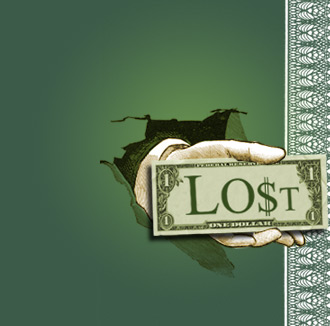
Bad Money, Bursting Bubble
Economists, political scientists, and energy experts, usually eager to make forecasts, have arguably predicted nine out of the last five recessions — a joke about economists seen occasionally in the media —or made comparable miscalculations in the other disciplines. Nevertheless, many have hoisted accurate warning flags about exactly the trends now visible, not least the dangers of financial and real estate bubbles. A view of finance as debt-driven and panic-prone goes way back. Some twentieth century scholars, especially before World War II, explained economic or business cycles as an unfolding progression: first came normal expansion; next, some catalyst, an unusual event or fear able to trigger a crisis (or panic). This flash point then led to economic recession or contraction, after which came revival of economic activity. Prosperity, by nurturing excess, led to crises, although economists usually disagreed on what and how. Europeans, in particular, embraced this weighty theory — la crise in French, die Krise in German. A crisis, wrote French business-cycle theorist Jean Lescure for the International Encyclopedia of the Social Sciences, "may be defined as a grave and sudden disturbance of economic equilibrium."
Economic historian Charles Kindleberger, in his classic work Manias, Panics, and Crashes, took a related view, often discounted during three decades of free-market orthodoxy, fatuous insistence on efficient and rational stock behavior, and homage to the ups and downs of the nation's all-explaining money supply. Kindleberger's concern was with "speculative booms in the cycle and in the crises at the peak, and especially with their financial aspects. By no means is every upswing in business excessive, leading to mania and panic. But the pattern occurs sufficiently, frequently, and with sufficient uniformity to merit renewed study."
The Austrian School of economics, for its part, taught that booms brought about by credit expansion must ultimately collapse. Basically, these economists concentrate on economic booms and what distorts them. Every boom, they say, comes from extraordinary credit expansion out of proportion to real economic growth. One Austrian School acolyte, Kurt Richebacher, had predicted just that unhappy fate for the U.S. housing bubble several years before his death during the summer of 2007. Hyman Minsky (1919-1996), part Keynesian, part disciple of Joseph Schumpeter, became so well known for preaching the financial system's vulnerability to speculation and risk that admirers labeled the August panic a "Minsky Moment." Certainly the Austrian-Minsky fusion, so specific in its finger-pointing, will rise or fall on the economic outcome of the next several years.
Reprinted by arrangement with Viking, a member of Penguin Group (USA) Inc., from Bad Money: Reckless Finance, Failed Politics, and the Global Crisis of American Capitalism by Kevin Phillips. Copyright © 2008 by Kevin Phillips.
BACK TO TOP
$ $ $ $ $ $ $ $ $ $ $ $ $ $ $ $ $ $ $ $ $ $ $ $ $ $ $ $ $ $ $ $ $ $ $ $ $ $ $ $ $ $ $ $ $ $ $ $ $ $ $ $ $ $ $ $ $ $
|
 Print
Print